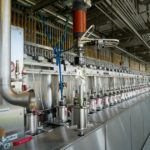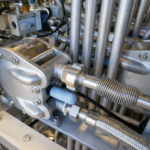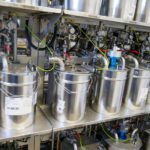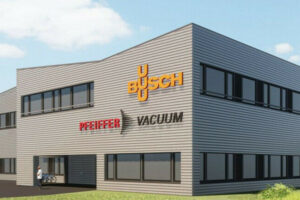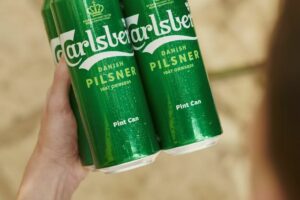In recent years the market for automotive coatings has experienced extremely dynamic development. For series-production paint manufacturers fast response times with short-notice adjustments of the paint formulation are crucial for market survival. “The paint must meet the requirements of the painting lines – not the other way around,” emphasises Susanne Richert, Project Manager for Site Development at BASF in Münster.
BASF launched the Lean Lab modular laboratory concept in order to quickly and flexibly meet current and future market requirements, and also to make work processes more efficient, less complex and more transparent. “Thanks to the Lean Lab we have been able to implement several innovative concepts. For example, collaborative process structures within paint labs, as well as digital recording and control of all manufacturing processes,” says Richert. Using a special software, BASF networks all integrated work areas of the lab, where practical sample manufacturing occurs, and thanks to this network the entire raw material supply can be centrally coordinated and controlled. This considerably accelerates the work flows, since the raw materials are always available at their prescribed stations at the right time.
High degree of automation
Formerly, to a great extent, paints were developed by hand. To create a paint, lab employees added specific amounts of raw materials to the overall mixture via pipette. Today this is done with a high degree of automation. “In the Lean Lab, a laboratory dosing device, especially developed for this purpose, is used, which automates the recurring work steps,” explains Alexander Küsener, Head of Automation and Digitalisation in the Lean Lab at BASF in Münster. The automatic dosing machine is unique in the coatings industry and was built especially for the laboratory in Münster. The 12 m long, 8 t machine, which BASF developed together with the equipment manufacturer Ficke Dosing + Filling Systems can produce standard formulations from more than 300 liquid raw materials.
This means specifically: on the system, the employees select a certain stored product, the system calls up the appropriate recipe and automatically mixes the raw materials together in a precise ratio. Thus the quality of the output mixture is uniformly high.
Efficient double diaphragm pumps from Timmer make this automation possible – they are the heart of the system and are elemental for its functionality. The central raw material supply for the more than 300 dosing points via the automated dosing machine occurs by means of the Timmer pumps. The materials are delivered, dosed, and regularly circulated by these pumps. For development of the coatings BASF works with several hundred raw materials that have different properties. “The materials to be dosed vary greatly in their flow behaviour and wide range of viscosities. Without constant pump capacities, dosing that is accurate to the gram cannot be realised,” states Küsener.
Space-saving pump technology
With the Timmer pumps BASF can pump virtually all materials. Two great advantages offered by the pumps are their compact design and ease of use. The double diaphragm pumps are only about half the size of conventional variants. BASF has several hundred of these pumps in use and they are installed in close proximity to each other; this means that the company saves a significant amount of space. At the same time the Timmer solution enables simplified access. If specific pumps must be inspected, they can be removed, i. e. dismounted, quite quickly and easily.
Another advantage: the double diaphragm pumps have an extremely low start-up pressure. Conventional variants on the market require a start-up pressure between 1.5 and 2 bar for the pump to even run at all; the Timmer solution requires only 0.5 bar to operate reliably even at 1 bar pressure. This results in significant medium-term and long-term energy savings, since less compressed air is required. Moreover, this has a positive effect when purging the lines. BASF is able to completely purge the system at a low pressure. This procedure is necessary to remove even the most minute residues, such as pigment particles, from the pipelines. Because the pumps are so small and compact, fewer residues are deposited. In addition, loss of raw materials due to emptying the system of residues is correspondingly low. This advantage reduces costs for BASF, since some raw materials, such as complex special paints, are very expensive.
Maximum process reliability
All moving parts in the heart of the Timmer pump are made of ceramics in conjunction with precision-ground, high-performance plastics. This results in minimum wear in the valve itself. In addition a short-stroke principle is used; the membrane executes shorter strokes and therefore it is subject to less wear. Shorter strokes also mean less pulsation – fewer pressure surges in the line. High pulsation can falsify measurements of the raw material quantity. Since in some cases BASF fills in the milligram range, this is an important factor. The Timmer solution has a so-called rest function. If the delivery rate is too low, frequently conventional pumps come to a standstill, and then do not start up autonomously. In contrast, with the Timmer pumps BASF can pump even in minimal quantities with no problems.
The digital networking in the Lean Lab, where the powerful pump technologies are an important component, quickly led to the desired results: BASF was able to optimise the quality of the paint samples, and leverage the efficiencies to increase the speed for the customer. “The high product and dosing quality, as well as the minimal service and maintenance requirements of the Timmer pumps, convinced us,” said Richert.
Timmer GmbH, Neuenkirchen, Germany



